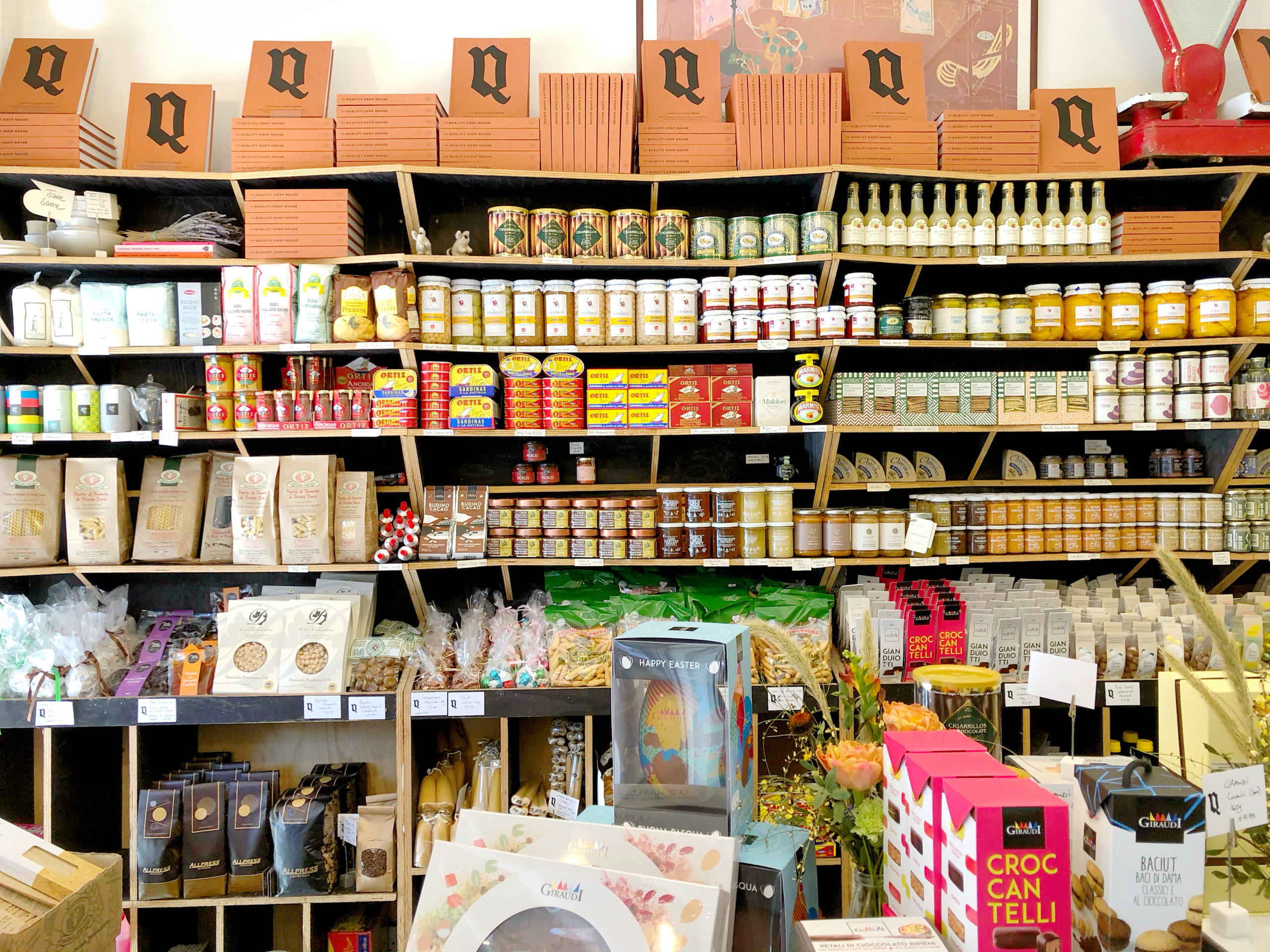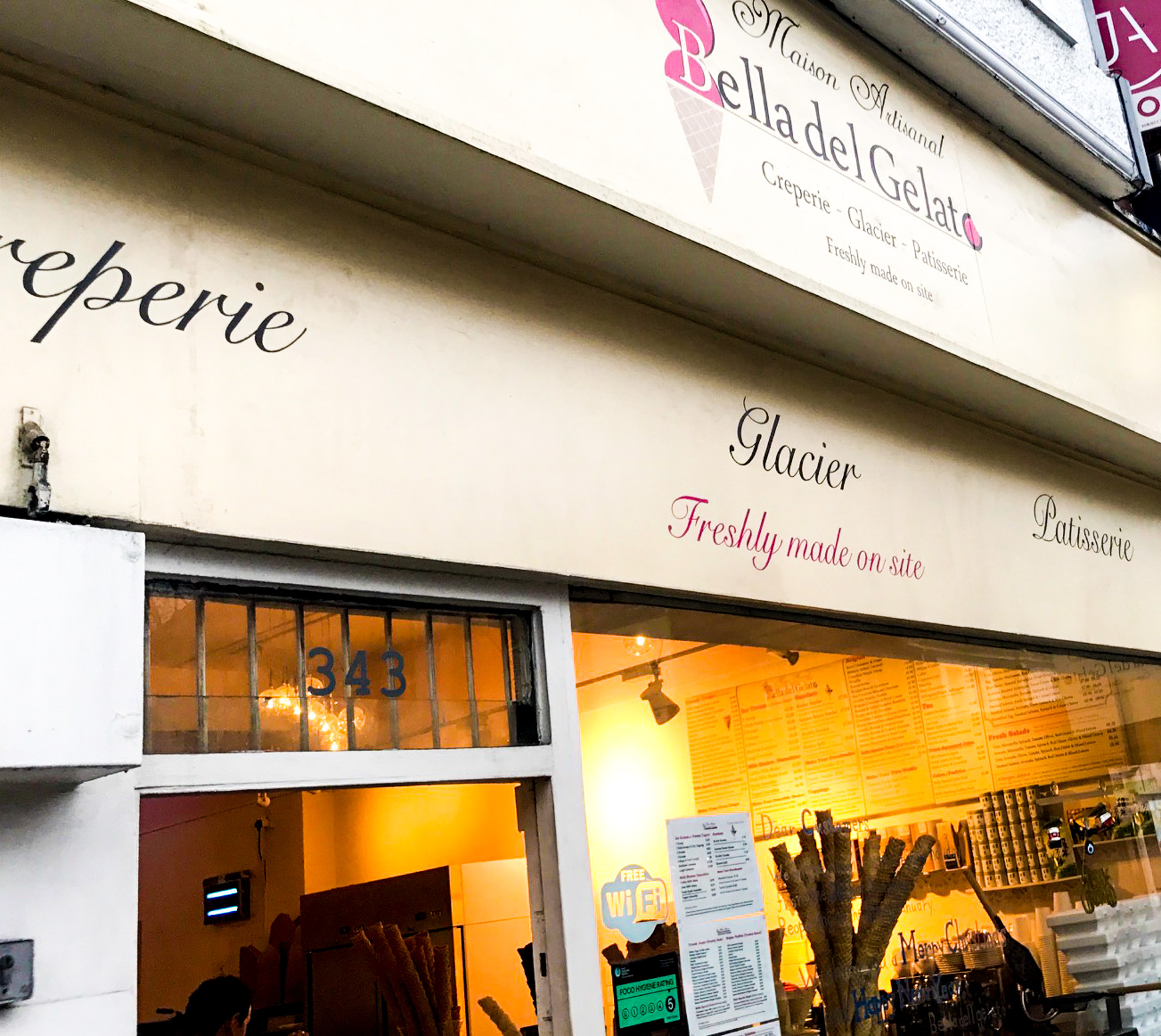To say that the hospitality and food sectors are in a bit of a pickle at the moment is an understatement: a volatile pound, more expensive imports, a drop in consumer confidence, market turbulence, weak investment and rising business rates are all coming together in one terrifying pincer movement. Furthermore, EU migrants are leaving the UK in droves and it’s looking likely that we will lose the current EU protections relating to food and agriculture, paving the way for chlorinated chicken and hormone-reared beef to enter the national diet. Were this a horror film you could suspend your disbelief. But no, this is reality.
Some of the recent optimistic headlines don’t reflect reality: the UK’s GDP may have expanded better than forecast at the end of 2017 but a 0.5% increase is hardly joyous news. Despite the apparent fall in unemployment and David Cameron returning from self-imposed exile just to say that Brexit isn’t as bad as he thought it would be those who care about food can’t be so blasé. 2018 is already proving to be an annus horribilis. Strada, Byron, Prezzo and the Jamie Oliver group have already shut low-performing branches to streamline their businesses, or in the case of Square Pie, have closed down altogether; independent restaurants such as the Galvin Brothers’ Bistrot de Luxe, Turners at 69 and 8 Hoxton Square have all shut up shop; Tesco, M&S and Sainsbury’s have announced ‘restructuring’ processes (dreaded managementspeak for job cutting). And, forgive me for saying the blindingly obvious, but Brexit hasn’t even happened yet. As it’s looking entirely possible that we may crash out of the EU without a deal in a year’s time, it’s a depressing and extremely worrying state of affairs.

Strada in Camden recently closed
The stats and figures say one thing, but one cannot ignore those most empirical sources of analysis: anecdotal evidence, field research and a good old-fashioned smell test. I’ve been observing things just in my local area for several months, taking notes in my trusty Moleskine notebook or simply speaking to staff. Firstly, my local pub started to increase prices incrementally, perhaps hoping customers wouldn’t notice. At the first 40p rise on my pint of continental lager (there have been two more rises since), the Portuguese waitress looked at me ashen-faced and apologised. (I apologised back – I didn’t vote for this Brexshit, this madness, this self-flagellation on a national scale; neither did 16.1 million other people). The bar manager at another one of my local bars is really very worried about holding onto staff, most of whom hail from continental Europe, and in the meantime their opening hours have shortened as a pre-emptive measure to reduce overheads. The French guy who used to serve me my coffee in my local coffee shop vanished overnight without trace. A couple of people close to me in other sectors have lost their jobs. Perhaps you’ve noticed similar things. Memories of the Great Recession are still very fresh in most people’s minds and it feels like It Is Happening Again. Indeed, the latest forecasts indicate that the UK will slip into a full-blown recession within two years. Did Leavers really vote for the country to become poorer, for us to return to being the ‘sick man of Europe’?
For those in denial I’d say wake up and smell the pecorino but soon even Italian cheese will become prohibitively expensive. The Brexiters may say there’s a bonanza to be had from our exports. But what do we export? Crisps and Harry Potter. (The French aren’t exactly going to buy English wine are they?).
The milk of human kindness turned sour on 23rd June 2016 but anger, frustration or just acquiescing to this nightmare don’t help either
But there’s no use crying over frothed milk. We can’t wish away that referendum result just as much as we can’t wish David Bowie back to life (when you stop and think about it, the Starman really was the force holding the universe together wasn’t he? Everything went wrong after he died).
Perhaps things will ‘bounce back’. Perhaps a progressive alliance will emerge and at least limit some of the damage. Maybe a referendum on the terms of the deal will stop Brexit altogether. At the moment we just don’t know and this is little comfort for either consumers or the industry. The milk of human kindness turned sour on 23rd June 2016 but anger, frustration or just acquiescing to this nightmare don’t help either. So here are some thoughts on we can help each other in the meantime, to adapt and prepare ourselves for a Brave New World.
Don’t stop going out!
Inflation without a commensurate rise in wages, and the proposed hike in council tax from April, are bound to induce some belt-tightening, frugality and self-austerity. It’s perfectly natural to curb your biscuit addiction, to forego that second cocktail, replace pricier meat for cheaper vegetables, and you may even be healthier as a result. But don’t stop going out! Why? Because it’s good for the soul. You may have had a crap week at the coalface, or job hunting in your pyjamas, so go out with your mates, your significant other or even just chat with your local bartender over a drink – it will be a mutually beneficial social experience and lift everyone’s spirits. We’re in this together – independent businesses are hurting too, so let’s help each other.
On that point though, if you reserve a table using an online platform but can no longer honour the booking, please do call the restaurant to let them know the table can be taken by someone else. If you’re concerned about value for money, just do a little research. Heck, read our reviews! We’ll tell where you’ll get more for your (devalued) pound.
The ‘casual dining crunch’ and modernisation
To be honest, when certain chains started closing down branches, it didn’t exactly tug the heartstrings for me, other than sympathy for the employees who now have to find a new job. Harsher critics in the industry, such as the founder of M Restaurants Martin Williams have said they are “rightly dying” – a sentiment echoed by chef Gary Usher, owner of Sticky Walnut in Chester, who said chains deserve to collapse because they are “f***ing awful”. With their mediocre offering and an expansionist business model in an over-saturated market, the bubble has burst. But indies are not immune from this either and the entire industry needs to adapt and modernise. Today’s customers are more health-conscious and also more image-conscious. Restaurants need to be tech-savvy, tuned into what millennials are looking for, and as much as this word makes me wince, need to be “Instagrammable.”
Short-term offers, discounts and freebies are all well and good to entice punters, but they’re just a plaster over a grazed knee. Restaurants, to be successful, need to play the long game
Whether a chain or an indie, all restaurants of course need to incentivise customers. Short-term offers, discounts and freebies are all well and good to entice punters, but they’re just temporary measures to provide a momentary boost of custom – just a plaster over a grazed knee. Restaurants, to be successful, also need to play the long game – invest in your customers by serving them well, and make them want to come back. One acid test is this: when a customer is thinking of somewhere comfortable and familiar to impress their guests for a special occasion or get-together of some kind, you want to be the restaurant that springs into their mind first.
Every new customer is a potential new regular and these are the ones you want on the balance sheet. At the same time, don’t piss off your existing regulars – they can retract their loyalty any moment they don’t get the treatment they are used to (and deserve).
The importance of service
Above all, the key to all of this is good service – in particular, service where the customer is looked after. These are the places I go back to time and again. All serving staff need to have that at the forefront of their mind. Fred Sireix has just written a book all about this, called ‘Secret Service’ – you can see an extract here.
More old-fashioned restaurateurs may dismiss the avocado craze and things like Veganuary as mere fads that will pass, but they risk ignoring what the customer wants at their peril. On one of my return visits to La Fromagerie just a couple of weeks ago (yes, I went back!) I overheard a customer ask for everything to be dairy-free. Yes, that’s an odd request in a cheese restaurant, but the guy was just in there for brunch and I was pleased to see that the waiting staff didn’t meet such a request with a roll of the eye, but accommodated (several other milk options being available for a start). It highlighted a simple point about putting the customer first. Meanwhile, restaurants like Primeur need to watch out – I love their food, I really do, but having a haughty we-know-better-than-the-customer no coffee policy could potentially alienate customers (perhaps they have revised this policy – we’ll update our review if this is the case).
Recruitment crisis
The recruitment crisis has already started. Since the Brexit vote, more EU migrants have been leaving the UK and fewer have been arriving. According to a 2017 survey by the National Farmers Union, the UK requires about 80,000 seasonal workers for fruit and vegetable picking, the great majority of which come from Europe – indeed, a mere 14 of the 13,400 workers recruited between January and May 2017 were British. As for the hospitality industry, this is basically screwed – the British Hospitality Association (BHA), based on research by KPMG, has essentially said as much. According to the BHA, the industry needs to recruit 200,000 people every year to make up for natural staff turnover. Brexiters might say that European people “coming over here” have been stealing British people’s jobs, but let’s face it, Brits are in the minority in this sector (just to give one example: according to Pret a Manger’s head of HR, just one in fifty job applications come from British citizens). This is partly because of the British perception that it is “beneath them”, or working in a restaurant is just a summer job for students or “resting” actors during a fallow period. This is all nonsense of course and is a perception that needs to change now.
School leaver and graduate recruitment fairs tend to focus more on universities, traditional and institutional career paths, from accountancy firms to the armed forces, and there’s nothing wrong with these, but hospitality tends to be brushed aside and overlooked. There are already admirable schemes such as The Roux Scholarship and Gordon Ramsay’s apprentice programme, though I wonder if G-Ram should still be the standard bearer (his shouty male-skewed image may be entertaining for TV but it’s not exactly going to entice people to work in kitchens). We need more female role models, though arguably this is beginning to change, with Clare Smyth, Monica Galetti and Angela Harnett amongst others now running their own restaurants and inspiring women to join the industry.

Clare Smyth with her brigade at Core last summer
It isn’t just working in kitchens and waiting, although many waiters do enjoy their work (this article is a few years old now but tells a positive side of the story). There are all kinds of job options available which will develop various skills, and perhaps careers advisers need to be selling these more to Brits. For example, working as a receptionist or concierge will develop organisational and communication skills. If you want some intellectual rigour, why not train to become a sommelier? It requires knowledge of wine, of course, but that in itself encompasses geography, history, science and wine law. I joked about English wine earlier but we’re going to need English wine experts. And indeed, why stop at wine? Beer and even tea sommeliers are now a thing.
Of course recruitment is only half the story. Retention is even more difficult in an industry infamous for a high attrition rate – unlike France, where hospitality is regarded with a much higher degree of prestige, in the UK there is a constant revolving door of staff, except after Brexit there will be a diminished supply of workers coming in through those doors. Nevertheless, even if we don’t accept that it’s a job for life (indeed, is any job for life these days?), we can be persuading young resident workers in the UK to consider this as a route. There are transferable skills. For example, it wouldn’t hurt anyone wanting to go into professional services like law or accountancy to cut their teeth as a waiter, learning the essentials of customer service. It cuts both ways too: Chantelle Nicholson is an example of a lawyer who became a chef, and is currently at the top of her game as chef patron of Tredwell’s.
working as a receptionist or concierge will develop organisational and communication skills. If you want some intellectual rigour, why not train to become a sommelier?
The other side of the coin is making the industry attractive to work in generally. The irregular hours may actually be appealing to those who don’t want a conventional 9-5 office job. Also, making people happy on a daily basis must surely give some job satisfaction. As for pay, the introduction of the living wage is of course a cost to the business, but this is outweighed by the moral argument that staff should be paid fairly for their hard work. In addition, service charges need to actually go to the staff and act as real incentives to retain them and to provide the aforementioned good service. We need fewer of the fat cats pocketing the cash and more distributed to those on the shop floor who do the real work. Is that too much to ask?
Education, farming and agriculture
This is where I really worry. Jacob Rees-Mogg and his Brexity acolytes want their so-called bonfire of regulations when the UK leaves the EU – regulations which include those relating to food and agriculture. This is one very negative consequence of Brexit that people are only beginning to realise. You can read more about the EU protections that currently exist, and what may be lost, here. This includes certain foods that cannot currently be sold in the EU’s member states because they contain certain flavourings, additives and genetically modified ingredients – the bonfire of regulations will mean such restrictions will no longer apply. Gulp.
without substantially similar food and farming regulations and better education of what we eat, the UK will sleepwalk into a national health disaster
In Liam Fox’s desperate quest for trade deals, one that causes alarm is the potential deal with the US which will require the UK to recognise the US’ food safety standards – standards which are substantially lower than the ones we currently enjoy as part of the EU. The US practices of chlorinating chicken and injecting antibiotics and hormones in livestock cannot be tolerated, especially as humans become more resistant to antibiotics. This article is sobering – I recommend you read it. We must maintain similar EU protections when it comes to farming practices.
Add to this it has recently been reported that the UK relies on ‘ultra processed food’ far more so than any other European nation. This is deeply troubling, especially as French research has highlighted the increased link between such processed foods and cancer. There is also a general lack of knowledge of food in general and its storage in the UK. A shocking 2015 survey revealed that one in five children do not know that bacon comes from pigs, and more than one quarter of children do not know that carrots grow underground. I also heard a story of a customer at a tea fair genuinely thinking Yorkshire Tea (as in the tealeaves) came from Yorkshire – whether that last one is completely true I’m not sure, but it’s really rather worrying knowing that so many people are taking convenience foods off the shelves without even realising what it’s in them or where the most essential ingredients come from.

An English kitchen garden
Finally, this brings me on to education. As Ridley Scott said in his BAFTA Fellowship acceptance speech last week, it’s teachers who do the most important work – and that applies to society in general. To that end, we need to improve food education immediately. When I did my GCSE in food tech way back in the day (grade A I hasten to add), I seem to recall it was about one third actual cooking and two thirds learning about how to design food packaging for imaginary supermarkets, only perpetuating the place of convenience food in the national diet. It was only through my own geekery that I taught myself about food and, later, wine. That was quite a while ago but the ‘food technology’ syllabus is probably due a shake-up in the light of Brexit.
Action needs to be taken to ensure a continuation of substantially similar food and farming regulations and better education of what we eat – without these, the UK will sleepwalk into a national health disaster.
What is to be done?
I recently attended a cross-party discussion about the impact of Brexit, attended by Tory, Lib Dem and Labour politicians, and one take-away point from all of their comments, no matter their political affiliation, was the need for industry and individuals in general to increase the lobbying and campaigning. If you feel sufficiently moved by the disaster that awaits us, then write to your MP. Go to their surgeries. Join local action groups. Make your voice heard in the upcoming council elections this May. Who knows, there may be another General Election within a year from now too.

No chlorinated chicken please
In the meantime, with all chain and independent restaurants suffering, is it not time for a VAT break for hospitality?
As for customers, keep going out but don’t forget, if you need to cancel, let the restaurant know (no-shows are currently crippling an industry already under massive strain).
Alas, this is not Shaun of the Dead. It’s tempting to think we could just go to The Winchester, have a pint and wait for this all to blow over. (Ironically the problems of Brexit have only perpetuated a stubbornly British stiff upper lip attitude – like being on holiday in Skegness and stoically waiting for the rain to let up). But weirdly enough, that’s one small way in which we can all help, not only by going out in the first place and thereby keeping our pubs and restaurants alive, but by extending olive branches and rekindling friendships that have been lost to Facebook spats over Brexit. Brexit has been incredibly divisive and social media has only exacerbated this – keyboard warriors have become so entrenched in their views and incendiary language that former acquaintances and family members are turning on each other. Is it entirely far-fetched to think that civil society is on the verge of breaking down? The anger is getting out of hand. But reconciliation over a drink and a chat can help. Whatever you might think of Nick Clegg, he was right when he recently reminded us “it’s an enduring truth, isn’t it, that if you look someone in the eye it’s very difficult to hate them.”
So let’s talk it over rather than insulting each other on a social media forum – this goes for both sides of the debate. We’re so much better than this.
Whichever way you voted in June 2016 (if you voted at all), it’s becoming abundantly clear that food, hospitality and farming will be amongst the hardest hit by Brexit and we will all pay the price. Hopefully some of the above will give some food for thought.
This article was last updated on 28th February 2018. All facts and cross-references within were verified as far as possible as at 28th February 2018.
All photography by J A Smith.






